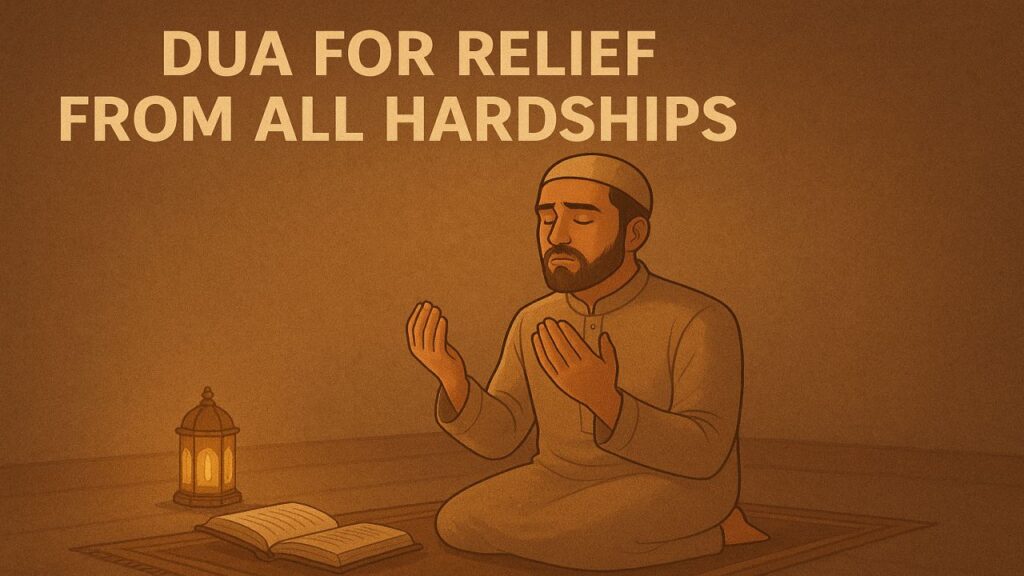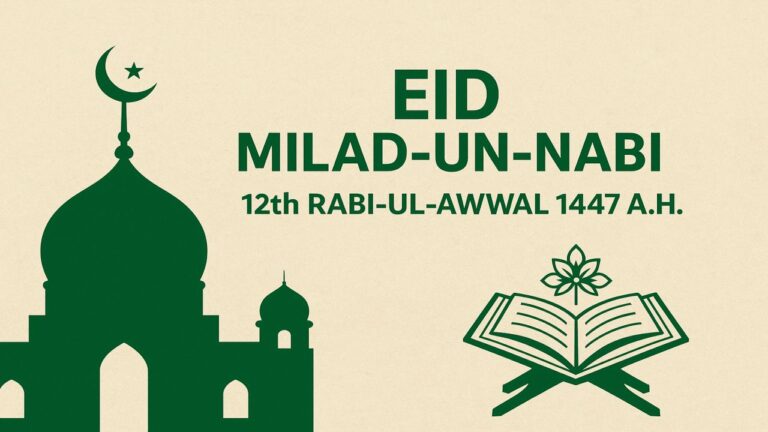Every believer faces moments of trial, pain, or uncertainty. During such times, turning to Allah with sincere supplication brings comfort, strength, and relief. The Dua for Relief From All Hardships reminds us that no difficulty is permanent and that Allah is the ultimate source of help and mercy. Reciting this dua strengthens faith, instills patience, and fills the heart with peace. It teaches us to rely on Allah completely — trusting that He will ease every burden and open doors of goodness even in the toughest times.
Masnoon Duain
Daily Supplications for the Believer
Listen to the Dua
Click the play button to listen to the recitation
Translation
Significance and Context
This beautiful dua encompasses several important aspects of Islamic spirituality. It begins by expressing hope in Allah’s infinite mercy, which is the foundation of a believer’s relationship with their Creator. The phrase “do not leave me to myself even for the blink of an eye” demonstrates profound awareness of human weakness and complete dependence on divine support. The request to “rectify all of my affairs” is comprehensive, covering every aspect of life – spiritual, physical, emotional, financial, and social. The dua concludes with the declaration of Allah’s oneness (Tawheed), which is the essence of Islamic faith.
This supplication is particularly recommended during times of distress, anxiety, or when facing multiple challenges simultaneously. It can be recited at any time, but is especially powerful during the last third of the night, after obligatory prayers, and during prostration in prayer.
Types of Hardships This Dua Addresses
Spiritual Hardships
Doubt, weak faith, lack of motivation for worship, spiritual emptiness, and distance from Allah.
Physical Hardships
Illness, pain, disability, fatigue, and any physical suffering or limitation.
Emotional Hardships
Anxiety, depression, grief, fear, stress, loneliness, and emotional distress.
Financial Hardships
Poverty, debt, unemployment, financial instability, and economic difficulties.
Social Hardships
Family problems, relationship issues, social isolation, and interpersonal conflicts.
Pakistani Languages Translation
Punjabi (پنجابی)
Sindhi (سنڌي)
Pashto (پښتو)
How to Recite This Dua Effectively
Preparation: Perform ablution and face the Qibla
Posture: Raise your hands and humble your heart
Recitation: Recite the dua with contemplation and humility
Perseverance: Repeat it three times and be patient for the response
Other Powerful Duas for Hardships
Transliteration: Hasbunallahu wa ni’mal wakeel
Transliteration: La ilaha illa anta subhanaka inni kuntu minaz-zalimin
Transliteration: Allahumma inni a’udhu bika minal-hammi wal-hazan
Benefits of This Dua
- Brings immediate relief from anxiety and distress
- Strengthens reliance on Allah and weakens dependence on created beings
- Comprehensively addresses all types of difficulties in life
- Increases faith in Allah’s mercy and responsiveness
- Provides spiritual comfort and inner peace
- Helps in the rectification of all affairs – spiritual and worldly
- Protects from despair and hopelessness
- Strengthens the bond between the servant and the Creator
- Can be a means of acceptance of other duas
Etiquette for Reciting Duas for Relief
- Begin with praise of Allah and blessings upon the Prophet (PBUH)
- Recite with presence of heart and full concentration
- Be in a state of ritual purity facing the Qibla
- Raise your hands while supplicating
- Be persistent and repeat the dua three times
- Choose the best times for dua acceptance (last third of night, between adhan and iqamah, during rain)
- Have certainty that Allah will respond in the best way
- Combine dua with righteous actions and charity
- Be patient and continue supplicating even if response is delayed
The Prophet Muhammad (peace be upon him) said: “Nothing can change the Divine decree except dua.” (Tirmidhi) And he also said: “Dua is the essence of worship.” (Tirmidhi) Remember that Allah responds to every supplication in one of three ways: either He grants what you ask for immediately, or He stores it for you in the Hereafter, or He averts from you an equivalent evil.















